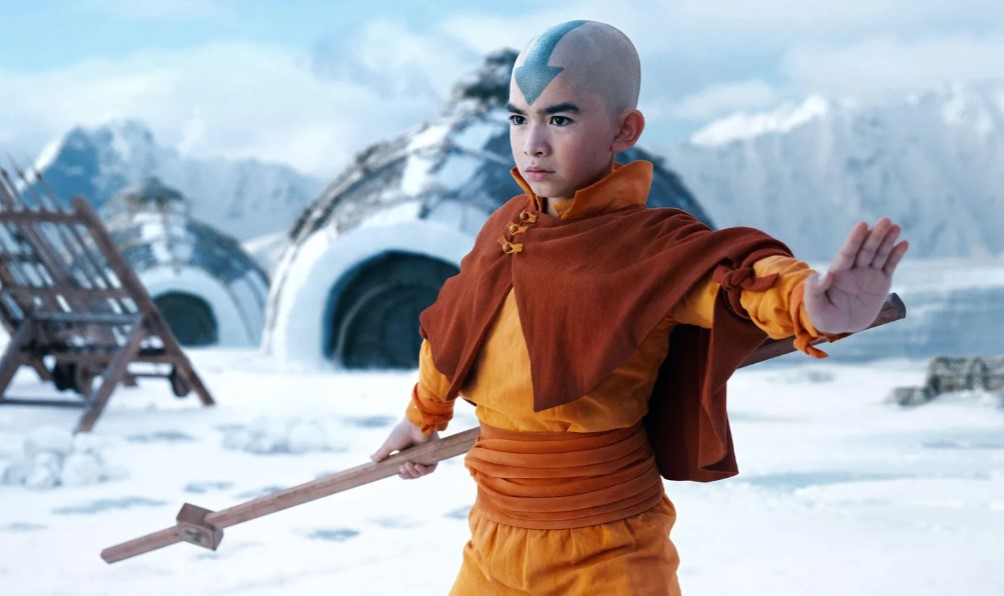Netflix's Avatar: The Last Airbender - A Missed Opportunity

- Country:
- United States
Spoiler Alert: This article contains spoilers. Proceed with caution if you have not watched the show/movie.
Netflix's highly anticipated live-action adaptation of "Avatar: The Last Airbender" has finally made its debut, sparking a whirlwind of reactions from fans and critics alike. The original animated series, created by Michael Dante DiMartino and Bryan Konietzko, is a beloved classic that has captivated audiences with its rich storytelling, complex characters, and imaginative world. However, this new rendition, led by "Sleepy Hollow" showrunner Albert Kim, falls short of capturing the magic that made the original so special.
A Promising Start with Flawed Execution
The live-action series sets out to retell the epic journey of Aang, the last Airbender, who awakens from a century-long sleep to find a world ravaged by the Fire Nation's war against the other nations. With the ability to control all four elements, Aang, accompanied by Water Tribe siblings Sokka and Katara, embarks on a quest to master his powers and bring peace to the world.
The show begins with promise, offering stunning CGI and special effects that bring the fantastical elements of the Avatar universe to life. The early episodes provide a solid introduction to the world's lore and the central conflict. However, as the series progresses, it becomes clear that the adaptation struggles to maintain the depth and nuance of the original.
Issues with Pacing and Character Development
One of the main challenges facing the live-action "Avatar" is its condensed format. Tasked with adapting the animated series' first season into just eight hours, the show rushes through pivotal narrative beats and character arcs. This hurried pacing leads to a lack of emotional depth and development, particularly in the portrayal of the series' antagonists and their motivations.
Moreover, the series' attempt to update and modify certain aspects of the story results in a loss of charm and humor. The absence of Sokka's comic relief, a hallmark of the original series, is keenly felt, rendering the character one-dimensional. Similarly, the intertwining of various storylines, such as Jet's freedom fighting with the tale of King Bumi, feels forced and detracts from the rich storytelling that fans have come to expect.
Visuals and Performances: A Mixed Bag
While the live-action adaptation excels in its visual presentation, the performances are a mixed bag. The series features a diverse cast that adds authenticity to the portrayal of the Avatar world's cultures. However, many of the actors struggle to convey the emotional weight of the narrative, resulting in performances that occasionally veer into the realm of melodrama.
There are, however, notable exceptions. Elizabeth Yu's portrayal of Princess Azula stands out, capturing the character's complexity and intensity. Similarly, Paul Sun-Hyung Lee's Uncle Iroh offers a nuanced performance that grounds the series during its more melodramatic moments.
Conclusion
Despite its promising start and moments of brilliance, Netflix's "Avatar: The Last Airbender" ultimately fails to recapture the essence of the animated classic. The series' shortcomings in pacing, character development, and emotional depth highlight the challenges of adapting such a beloved and intricate story. Fans of the original may find some enjoyment in the live-action series' visual spectacle, but many will likely long for the nuanced storytelling and character dynamics that made "Avatar" a masterpiece of animation.
Also Read: Elite Season 8: Everything We Know So Far
- READ MORE ON:
- Avatar: The Last Airbender
- Netflix
- live-action adaptation
- Avatar animated series
- Michael Dante DiMartino
- Bryan Konietzko
- Albert Kim
- CGI
- special effects
- Aang
- Sokka
- Katara
- Fire Nation
- Elizabeth Yu
- Princess Azula
- Paul Sun-Hyung Lee
- Uncle Iroh. Avatar: The Last Airbender review
- review Avatar: The Last Airbender
- Avatar










